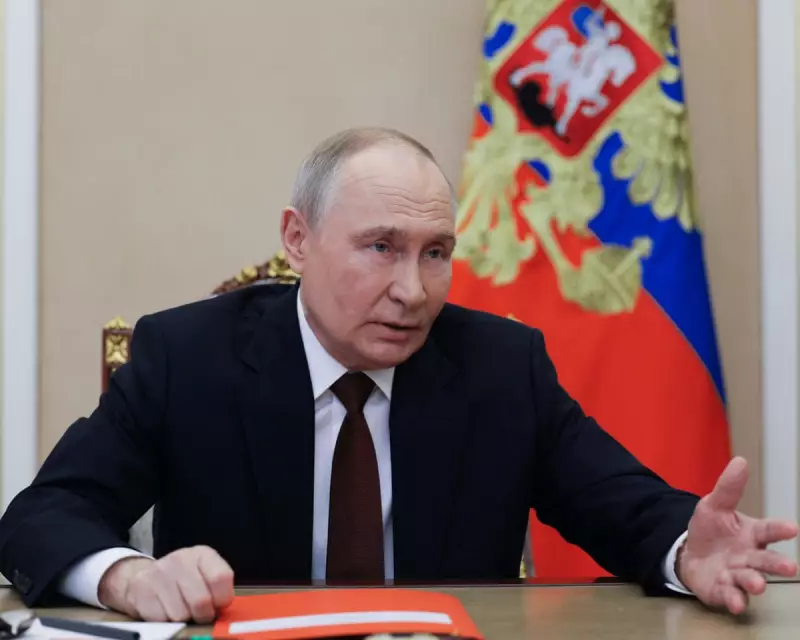
Vladimir Putin has positioned himself advantageously in the latest round of Ukraine peace negotiations, with a leaked 28-point proposal creating precisely the conditions the Russian president has long sought according to analysts.
The Leaked Proposal That Changed Everything
The peace plan, largely drafted in Florida by US property developer Steve Witkoff and Kirill Dmitriev, head of Russia's sovereign wealth fund, has thrown Washington, Kyiv and European capitals into disarray. While the exact origins of the plan and Donald Trump's precise role remain unclear, the US president has embraced it, recently returning to portraying Ukraine as the obstacle to ending the war.
On his Truth Social platform, Trump complained that Kyiv's leadership had "EXPRESSED ZERO GRATITUDE FOR OUR EFFORTS", signalling a potential shift in Washington's stance that plays directly into Moscow's hands.
Kremlin's Strategic Silence
Moscow has maintained a strikingly quiet posture throughout the unfolding drama. For days, the Russian foreign ministry feigned ignorance about any peace initiative before Putin himself finally commented late on Friday. The Russian president stated the proposals "could form the basis of a final peace settlement" but experts believe he will not agree to it without amendments in his favour.
The structure of the US negotiation process works to Russia's advantage, with Washington wanting Kyiv to sign off on the plan before a US delegation travels to Moscow to finalise terms. The Kremlin believes any move by Volodymyr Zelenskyy to accept something close to the 28-point draft would trigger political turmoil in Ukraine - an outcome Moscow would welcome.
Putin's Calculated Waiting Game
According to Tatiana Stanovaya, a senior fellow at the Carnegie Russia Eurasia Centre, the current proposal leaves far too much room for interpretation, making it the sort of document Putin would never sign. She described the draft as clumsily written with vague wording on Ukraine's neutrality and NATO's future expansion that would demand concrete "documents, timelines and commitments" none of which appear in the current version.
Anton Barbashin, a visiting researcher at the European Council on Foreign Relations, estimates that "the plan may be 70% acceptable, but the rest is something Putin will not agree to." He expects the Russian leader to respond with amendments that better serve Moscow's interests.
Putin stopped short of confirming he would sign the deal, in part because he's waiting to see how apparent disagreements inside the US administration over the plan unfold. Marco Rubio, the US secretary of state, recently stressed that the US "authored" the peace plan after a Republican senator asserted Rubio had distanced himself from the proposal.
Fyodor Lukyanov, a foreign policy analyst close to the Kremlin, suggests Russia will maintain military pressure "at its current level" until Ukraine accepts the original 28-point plan, after which Moscow would be ready to move to detailed discussions. With events moving quickly, Putin appears content to let the Western alliance unravel while he watches from the sidelines.





